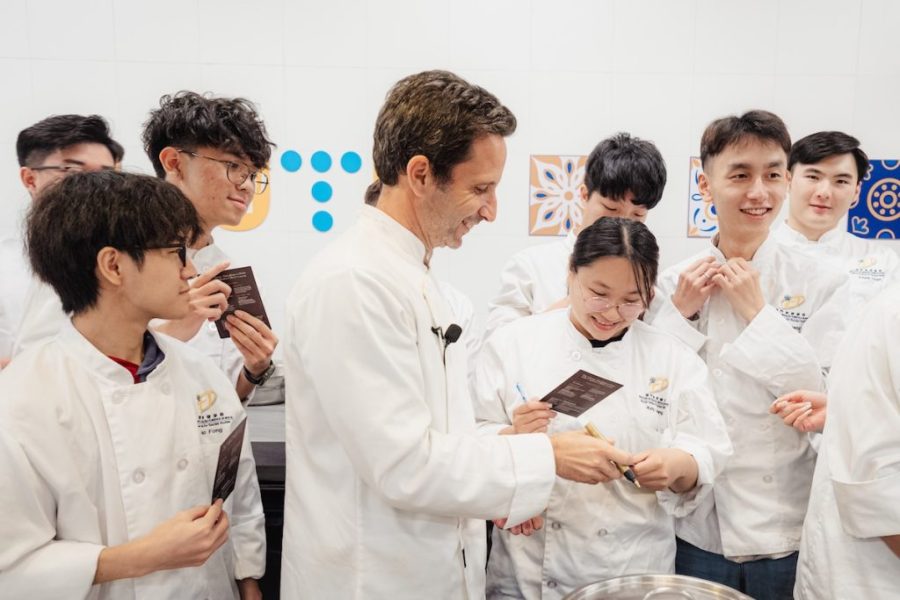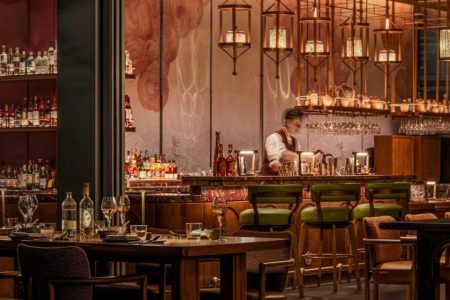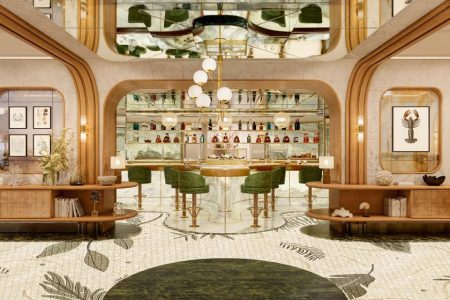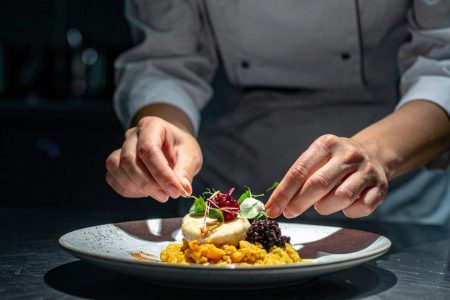Portugal’s renowned chef and restaurateur José Avillez told Ponto Final he sees his Macao restaurant, Mesa by José Avillez, as playing a role in the evolution of Macanese cuisine. In an interview published in Portuguese this week, the chef spoke candidly of the innovation, respect for culinary heritage and mental health struggles that go on in his high-pressure industry.
Avillez currently oversees an empire of more than 30 restaurants in Portugal, Dubai and Macao (Mesa opened at the Grand Lisboa Palace resort in 2019). Three of these establishments – Lisbon’s Belcanto and Encanto, and Dubai’s Tasca – boast four Michelin stars between them.
Mesa was the only Portuguese restaurant to make the South China Post’s 100 Top Tables round-up last year, though the chef said he felt like he and his team were “creating a new Macanese cuisine, or moving towards it. This means a Portuguese cuisine adapted to the territory, with a lot of love for all local traditions.” He credited contemporary Portuguese fare’s flexibility for allowing him to adapt Mesa’s dishes to the territory.
[See more: These are the Macao restaurants that made the 2025 Michelin Guide]
Avillez also reflected on Macao’s rich culinary history, shaped by centuries of cultural fusion. He noted that Portuguese seafarers and traders first arrived in Macao half a millennium ago, and began blending culinary influences from China, India, Africa and Brazil. Mesa, he added, was gradually incorporating more Asian elements – proof that the city’s culinary landscape remained in motion.
“It doesn’t happen overnight; it takes time, so that we can better understand what we’re doing and make sure it makes sense,” he told Ponto Final. “Perhaps, in 200 years’ time, what we’re doing will also be considered an evolution in Macanese cuisine.”
As an example of Mesa’s localised adaptations, the chef pointed to traditional stews that usually featured the giant prawns found in Portuguese waters called a carabineiro. In Macao, he subbed in shrimp and pork, “which are more typical here”. He also observed that Macao diners tend to favour meat and seafood more than their counterparts in other markets, where vegetarian food is gaining popularity.
[See more: Macao has been excluded from the extended list of Asia’s 50 Best Restaurants]
Avillez said he felt a responsibility to balance the heritage aspects of Portuguese cuisine – which he described as representing “the memory of our mothers, our grandmothers” – with culinary innovation. He also acknowledged that not everyone was on board with this mentality.
“I remember that my first contemporary versions of a Portuguese stew or a custard tart earned me letters from all over the country insulting me,” he recalled in the interview. “It’s not that they had even tried them; they just saw the news and felt insulted for daring to change their grandmother’s recipes.”
Beyond the creative challenges, Avillez highlighted the demanding nature of restaurant kitchens and the mental health struggles within the industry. His restaurants run group therapy programs with psychologist support, something he said he considered crucial.
[See more: Many new jobseekers hail from the restaurant and retail sectors]
“I see social, human and mental well-being as something even more important than environmental sustainability. If we don’t save people, there’s no point in saving the planet.”
Jetting between restaurants on three different continents puts a unique kind of pressure on Avillez himself, he told Ponto Final. He said he sometimes popped into Macao for less than a day, just to cook lunch or dinner. He also emphasised that the frequent exhaustion of these short trips were worth it.
“[The goal is] to bring a little bit of Portuguese culture, of our hospitality, to the other side of the world,” he said. “A side of the world that was once a little bit ours and where we still have some memories.”






